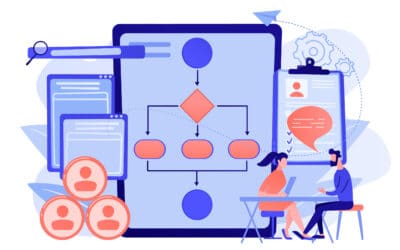Many business leaders overlook their Accounts Payable process, underestimating the importance it has on the success of the business. Implementing best practices will create an efficient Accounts Payable process that can save time, money, and headache by reducing errors and decreasing transaction expenses. This is especially true for multi-unit businesses, as their Finance and Accounting functions are even more complex.
“The important thing about the Accounts Payable process is that it becomes a very powerful tool to monitor company performance, improve productivity and reduce inefficiencies.” says Elisha, Corporate AP Trainer, InfoSync.
As leaders in Finance and Accounting for multi-unit businesses, we understand the best practices in Accounting that help drive the agility and longevity needed to influence growth. Here are some best practices in Accounts Payable to help you get back on track.
If you’ve considered outsourcing but you’re unsure if it’s a worthy investment, we recommend you read our article: Cost Benefit Analysis: How to Decide if Outsourcing is Worth It
Keep Track of Key Metrics
Keeping track of key metrics helps you manage your cash flow and address any inefficiencies in the Accounts Payable process. Leaders should regularly review vendor terms, clauses, and agreements to ensure everyone is meeting expectations. Operational reports and data analytics should be used to improve cash flow analysis and planning, reduce fraud, verify you have an audit trail of all activities, and monitor the volume and value of invoices and payments. These KPI’s give you an overhead view of your cash flow and how your company is performing.
Implement Automation
Manual processes require time and labor from employees who could be focused on higher priority items. Data entry, invoice processing, billing, and other tasks should be performed through a digitized and automated system to reduce the opportunity of human error, saving company resources for high-value tasks.
Build An Expert Team
Having one dedicated team who understands the details of your Accounts Payable processes reduces the risk of error, saves time and money, and reduces the risk for fraud to take place. Cross-training employees to handle all aspects of the processes not only shapes your employees for success, it ensures functions can be covered by all team members at any given time, should an employee be out of the office or leave employment.
Data Backup
Cyber security and compliance are essential for today’s business practices. Companies need to ensure accounts payable data is secured, stored, and backed up automatically to eliminate the risk of a data loss, which can be devastating to a business.
Daily Reconciliation
In order for your accounts payable process to work efficiently, business accounts need to be reconciled daily. Many leaders let this function slip through the cracks as other important items come up throughout the day. However, if your ledger isn’t accurately reflecting the amount of cash in the bank, this can cause issues with your cash flow and create unnecessary headaches.
Key metrics, automation, cross-training, data back-up, and daily reconciliations are just a few areas in Accounts Payable where leaders can reduce cost and improve cash-flow planning. The accounts payable process is just one area of the complex Finance and Accounting process. Business leaders will spend an enormous amount of time and energy building and managing the team and processes in-house. For companies who are ready to scale, business leaders should consider outsourcing their Finance and Accounting functions. Outsourced Accounting delivers the team and the expertise, freeing leaders up to focus on the core business.





0 Comments